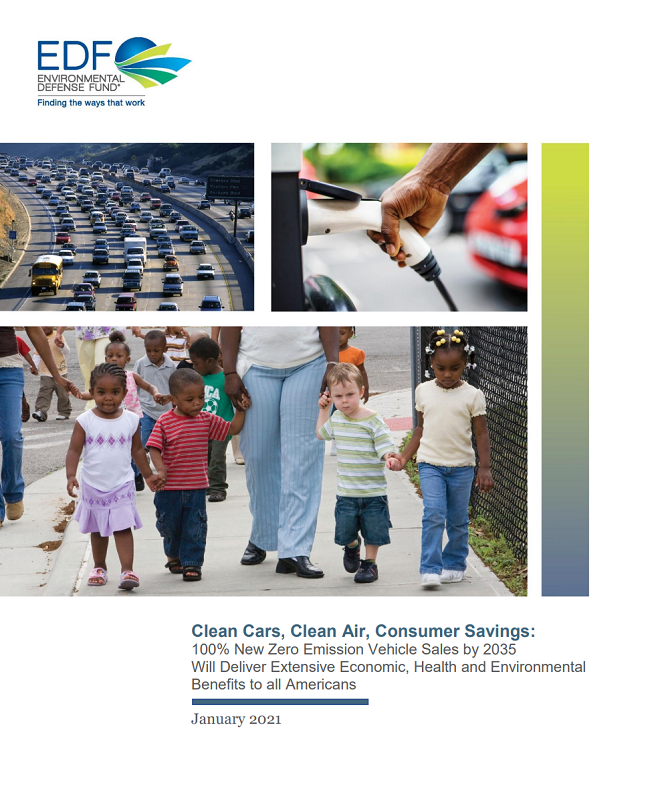The Biden-Harris Administration has committed to achieving a 100% clean energy economy and net-zero emissions no later than 2050 and, as part of that goal, ensuring that 100% of new sales for light and medium-duty vehicles will be electrified. Rapidly ensuring all light, medium- and heavy-duty vehicles are zero-emitting is one of the most important actions that the United States can take to reduce climate pollution and provide healthier and longer lives for millions of Americans, especially communities of color that are more likely to be harmed by pollution from the transportation sector as a result of discriminatory policies and practices.
Adopting transformative, multipollutant standards will also provide important consumer and economic benefits, saving Americans money through avoided fuel costs and delivering high quality jobs. Ensuring that all new sales of passenger vehicles are zero emission vehicles (ZEV) by 2035 and new medium- and heavy-duty trucks are ZEVs by 2040 is a transformational change that will require a whole of government approach. Multipollutant standards must be paired with societal investments in infrastructure and American manufacturing, vehicle purchase incentives and other policies that will ensure the transition is both rapid and durable and that the benefits of electrification are shared equitably by all Americans. This report focuses on the important role that multipollutant standards for passenger vehicles that ensure all vehicles sold in 2035 are zero-emitting would play in that landscape and the substantial benefits they would deliver.
Preview the report here:
 Loading...
Loading...
More About this Resource
Publisher: Environmental Defense Fund
Date: January 26, 2021
Type: Research Reports
Countries: United States
States: None
